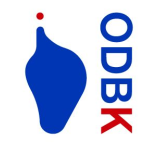Va-Bene Elikem Fiatsi
I believe performance is an embodiment of life, perhaps subtle but intensive and ephemeral, which could provide an intimate dialogue between the performer/s and the audience (co-performers). It is important using performance as a potent medium to re-examine our own colonial history from dynamic experiences. However, the subject of Gender, sexuality, race and being privileged seem as residues from several colonial past, experiences and [post-religious] debates for autonomy, cultural authenticity and the politics of power.
As an artist whose work provoke thoughts and emotions on our own sense of mortality and vulnerability, I engage the body into performative works of art as set of rituals that assists in evoking our continuity and discontinuity to the ‘Other’ and ‘Self’, trying to give new meanings to the concept ‘being’. While exploring the politics of Identity, class, gender, sexuality, human vulnerabilities, and our own sense of mortality, I present my body as a violation, taboo and pleasurable object of violence through simple but complexly layered rituals to my audience. In my performances, silence and meditation is to seduce the audience to participate in the habitual [shamanic] gestures by deeply evoking emotional dialogues as process and product of performance art, which at the same time collapses the walls between the audience and the performer. To be a shaman in my rituals is a metaphor of being an intermediate between the privileged and the marginalised, speaking the language of silence as an artistic responsibility to question the conscience of humanity.
However, my investigations as an activist and artist employ experimental cross-disciplinary works, which cut across performances, installations, videos, sounds and photography while exploring the notions of [belongingness] and relationship between the body and the world. I seek to provoke and question the cultural frictions between gender performativity, race, sexual prejudice and its misrepresentation
Number of evaluations: 0
Artist in Demarchy process
